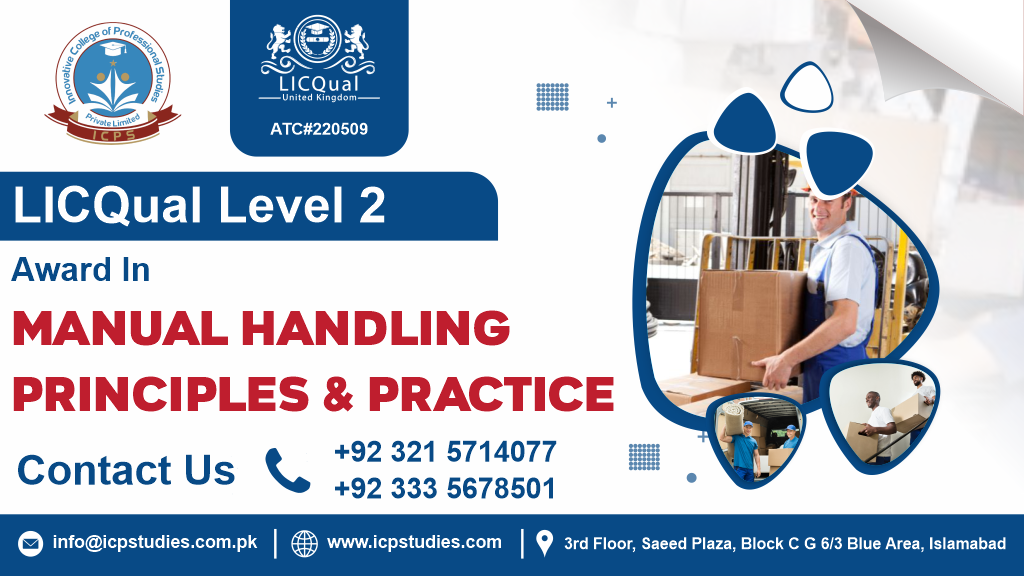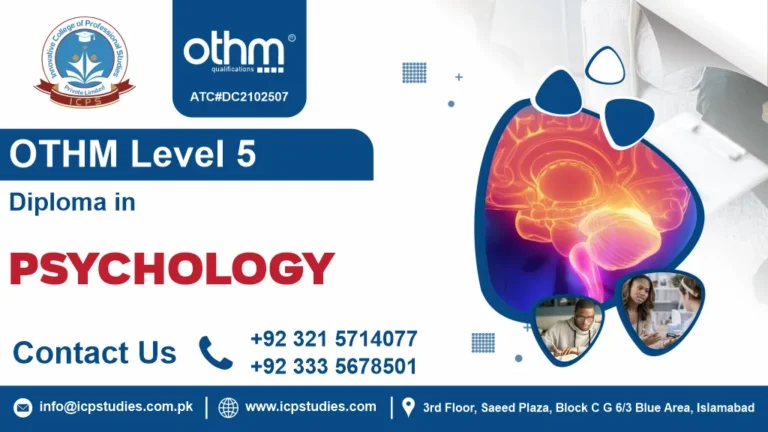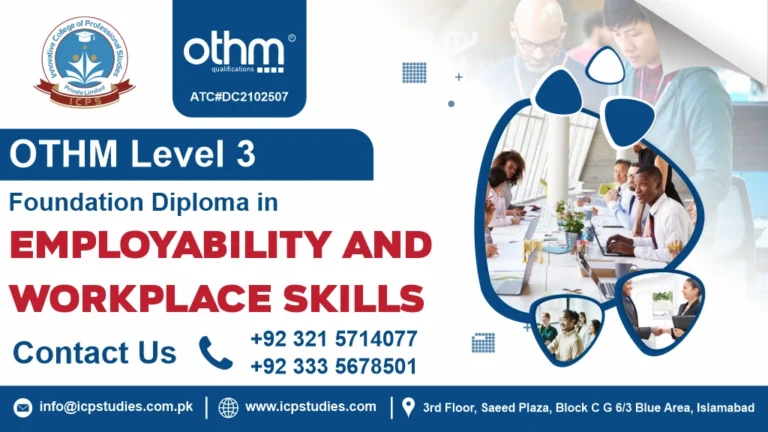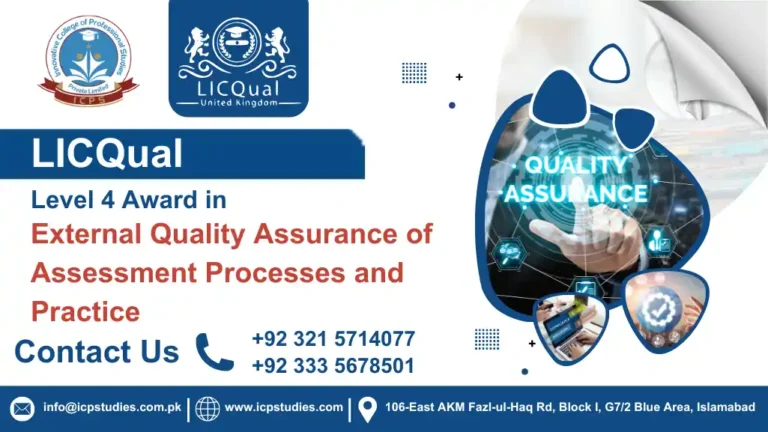Our program covers a wide range of topics essential for safe manual handling, including risk assessment, correct lifting techniques, and the importance of ergonomics. With a focus on practical application, learners gain actionable insights that can be immediately implemented in the workplace.
LICQual is synonymous with quality and credibility in the realm of vocational qualifications. Our Level 2 Award is accredited by industry-leading bodies, giving employers confidence in the proficiency of their workforce.
We understand that every workplace is unique, which is why our training can be customized to meet the specific needs of your organization. Whether you operate in healthcare, manufacturing, or hospitality, our flexible approach ensures relevance and applicability.
Our instructors are seasoned professionals with extensive experience in manual handling practices. They impart not only theoretical knowledge but also real-world insights garnered from years of hands-on experience.
Investing in the LICQual Level 2 Award in Manual Handling Principles and Practice is not just a choice; it’s a strategic decision to prioritize safety, efficiency, and compliance. Empower your workforce, mitigate risk, and propel your organization towards success with a qualification that sets the standard for excellence in manual handling training. Enroll now to learn more about how LICQual can transform your workplace safety culture.
All About Level 2 Award in Manual Handling Principles and Practice
Course Overview
The LICQual Level 2 Award in Manual Handling Principles and Practice is a professional certification program designed to equip individuals with the knowledge and skills necessary to handle manual tasks safely and efficiently in the workplace. This qualification, offered by LICQual Limited, is recognized by industry-leading bodies and is aimed at enhancing workplace safety standards across various sectors.
The program covers essential topics related to manual handling, including risk assessment, correct lifting techniques, ergonomics, and the prevention of musculoskeletal injuries.
Emphasis is placed on the practical application of learned principles. Participants engage in hands-on training sessions to reinforce proper manual handling techniques and procedures
The curriculum is tailored to meet the specific needs of different industries, ensuring that participants gain relevant knowledge applicable to their respective workplaces.
The training is delivered by experienced instructors who possess in-depth knowledge of manual handling practices. They provide valuable insights and guidance based on real-world experience.
Overall, the LICQual Level 2 Award in Manual Handling Principles and Practice serves as a benchmark for excellence in manual handling training, empowering individuals and organizations to prioritize safety, enhance efficiency, and promote a culture of well-being in the workplace.
Study Units
Learning Outcomes
Here are the expected outcomes for each of the study units:
- Introduction to Manual Handling:
- Understand the concept of manual handling and its significance in the workplace.
- Recognize the importance of safe manual handling practices for preventing injuries.
- Identify common manual handling tasks and their potential risks.
- Anatomy and Physiology:
- Gain knowledge of the musculoskeletal system and its role in manual handling.
- Understand how muscles, bones, and joints work together during manual tasks.
- Recognize the impact of poor posture and improper lifting techniques on the body.
- Manual Handling Hazards and Risk Assessment:
- Identify potential hazards associated with manual handling activities.
- Understand the principles of risk assessment and their application in the context of manual handling.
- Learn how to evaluate risks and implement control measures to mitigate them.
- Safe Manual Handling Techniques:
- Acquire practical skills in safe manual handling techniques, including lifting, carrying, pushing, and pulling.
- Learn proper body mechanics and positioning to reduce the risk of injury.
- Understand the importance of using mechanical aids and ergonomic equipment to minimize strain.
- Team Handling and Communication:
- Develop communication skills necessary for effective teamwork during manual handling tasks.
- Learn how to coordinate with team members to ensure safe and efficient handling of loads.
- Understand the importance of clear instructions, feedback, and support in preventing accidents and injuries.
- Practical Application and Assessment:
- Apply theoretical knowledge and practical skills acquired during the course in real-world scenarios.
- Demonstrate proficiency in performing manual handling tasks safely and efficiently.
- Receive feedback and assessment to evaluate competency and identify areas for improvement.
Overall, by completing these study units, participants will be equipped with the knowledge, skills, and confidence to engage in manual handling activities responsibly, minimize risks, and contribute to a safer working environment.
Admission Criteria
Entry requirements for the LICQual Level 2 Award in Manual Handling Principles and Practice may vary depending on the training provider and jurisdiction. However, typical entry requirements may include:
- Minimum Age: Participants must be at least 16 years old. This ensures that individuals have the maturity and capacity to understand and apply manual handling principles safely.
- Language Proficiency: Proficiency in the language of instruction is essential to comprehend course materials and instructions effectively. Participants may be required to demonstrate a certain level of proficiency through a language proficiency test or equivalent.
- Health and Fitness: Manual handling tasks can be physically demanding. Participants should have a reasonable level of fitness and physical capability to engage in practical training activities safely. Individuals with pre-existing medical conditions or disabilities should consult with the training provider to assess their suitability for the course.
- Educational Background: While there may not be specific educational prerequisites for this course, a basic level of literacy and numeracy skills is beneficial for understanding course materials and completing assessments.
- Occupational Requirements: Depending on the industry or workplace context, participants may need to meet certain occupational requirements or hold relevant positions that involve manual handling tasks. This ensures that individuals undertaking the course have a practical understanding of manual handling practices relevant to their work environment.
- Pre-Course Assessment: Some training providers may conduct a pre-course assessment to evaluate participants’ readiness for the training program. This assessment may cover basic knowledge of manual handling principles or physical capabilities relevant to the course.
- Legal Requirements: Compliance with local health and safety regulations may also influence entry requirements for the course. Participants may need to provide proof of eligibility to work or undergo background checks as required by regulatory authorities.
It’s essential for prospective participants to check with the specific training provider offering the LICQual Level 2 Award in Manual Handling Principles and Practice for the most accurate and up-to-date information regarding entry requirements.
Ideal Candidate
The LICQual Level 2 Award in Manual Handling Principles and Practice is designed for a wide range of individuals across various industries and occupations. This comprehensive course caters to the needs of:
- Employees: Workers who are involved in manual handling tasks as part of their job responsibilities, including lifting, carrying, pushing, and pulling loads. This may include individuals working in industries such as healthcare, manufacturing, construction, logistics, hospitality, retail, and agriculture.
- Employers and Managers: Business owners, managers, supervisors, and team leaders who are responsible for the health and safety of their workforce. This course equips them with the knowledge and skills to implement safe manual handling practices, conduct risk assessments, and create a culture of safety within their organizations.
- Health and Safety Professionals: Professionals working in occupational health and safety roles who require specialized training in manual handling principles and practices to fulfill their duties effectively. This course provides them with the necessary expertise to develop and implement manual handling policies and procedures in compliance with regulatory standards.
- Trainers and Instructors: Individuals involved in delivering manual handling training programs within their organizations or as external trainers. This course enhances their instructional skills and subject matter expertise, enabling them to deliver engaging and effective training sessions.
- New Entrants to the Workforce: Students or individuals who are seeking employment in industries where manual handling tasks are prevalent. This course serves as a foundational training program, equipping them with essential knowledge and skills to enter the workforce safely and confidently.
- Career Advancers: Professionals looking to advance their careers in industries where manual handling skills are valued. Obtaining the LICQual Level 2 Award in Manual Handling Principles and Practice demonstrates their commitment to safety and proficiency in manual handling, enhancing their prospects for career growth and advancement.
Regardless of their background or occupation, individuals who enroll in this course share a common goal of promoting workplace safety, reducing the risk of injuries, and ensuring compliance with health and safety regulations. Whether they are frontline workers, supervisors, or health and safety professionals, this course empowers them to contribute to a safer and healthier work environment for themselves and their colleagues.
FAQs about Level 2 Award in Manual Handling Principles and Practice






